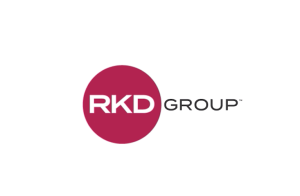Americans are in need of assistance but fewer are in a financial position to be able to provide it. A new survey by polling firm Gallup found a new low in the percentage of Americans reporting they donated money to charity. Some 73% of U.S. adults say they donated money to a charitable organization during the past year, surpassing the prior low from the Great Recession era.
Gallup polling in prior years found more than 80% of U.S. adults saying they donated money to a religious or other type of charity in the past year — except for 2009, during the worst economy since the Great Depression, when it dipped to 79%.
Despite all of the activity regarding COVID-19, fewer than one-third (29 percent) have done anything related to coronavirus relief. Volunteer activity was its lowest in 2009, at 55%. While today’s 58% is slightly higher than that, it is down from 64% in the prior reading in 2017.
These results are based on an April 14-28 Gallup poll conducted amid the coronavirus pandemic.
Although the donation and volunteering questions ask about activity over the past 12 months, it is possible many respondents might be answering only about their current or very recent activity. The sudden downturn in the economy and stay-at-home orders began in March, but those events followed a strong economy the prior 10 months, during which people would arguably have been in a better position to engage in charitable activity.
There is also evidence, according to Gallup, from past surveys of a seasonal pattern in responses, with higher estimates of charitable activity when the question is asked in December than in other months of the year — again suggesting that some people may be answering about what they are presently doing rather than what they’ve done over the past year.
Also, the decline in charitable activity since 2017 might be related to changes in tax laws as well as the coronavirus. More Americans now than in 2017 claim the standard tax deduction, and would not get a direct tax benefit from donating to charity as they would have in the past.
In addition to donating their time and money, the poll finds 60% of Americans saying they have donated food and 13% saying they’ve given blood in the past year. This is the first time Gallup has asked people about making food donations. Gallup has asked Americans about giving blood six other times since 2001. The current reading is, by one percentage point, the lowest Gallup has measured in a single poll and is three points below the average of 16%.
Upper-income Americans have consistently been among the subgroups most likely to make charitable donations. While that continues to be the case, charitable giving is down among all income groups since the prior measurement in 2017 — but it has fallen much more among those in middle- and lower-income households than among those in upper-income households. As such, the gap in the percentages of upper- and lower-income Americans giving to charity has swelled from 19 points to 31 points.
Reductions in volunteering are most pronounced among middle-income Americans, declining from 71% in 2017 to 58% today. There has been no meaningful change in the percentage of upper-income Americans reporting they volunteered time in the past 12 months (76% in 2017 and 75% now). Lower-income Americans, who are much less likely to volunteer, show only a slight decline, from 49% in 2017 to 44%.
Americans who have done some charitable activity in the past year were asked if any of those efforts were done in the past two months specifically to help with coronavirus relief efforts. One in three who have done charitable work — equivalent to 29% of all U.S. adults — say they have done so.
Coronavirus-related charitable activity is more common among higher-income adults as well as Americans with higher educational attainment. Forty-three percent of upper-income Americans and 49% of those with a postgraduate education say they have donated or volunteered to help those affected by the coronavirus pandemic.
Last month, 30% of Americans reported some direct financial harm from the coronavirus pandemic. In a troubled economy, it may be difficult for Americans to devote resources to charitable organizations.
The majority of Americans, 66%, say they do not plan to change the amount they give to charity in the coming year. However, more say they plan to increase (25%) rather than decrease (7%) their charitable contributions.
The figures are very similar among Americans who have donated money in the past year — 27% plan to increase those donations, 66% plan to keep them about the same, and 7% plan to decrease them.
Four in 10 upper-income Americans plan to increase their charitable contributions in the next year, as do 23% of middle-income Americans. Lower-income Americans are about as likely to say they will decrease their charitable donations (13%) as to say they will increase them (17%).
Americans with a postgraduate education are especially likely to say they plan to increase their charitable donations, while the results are similar among the other education groups.









